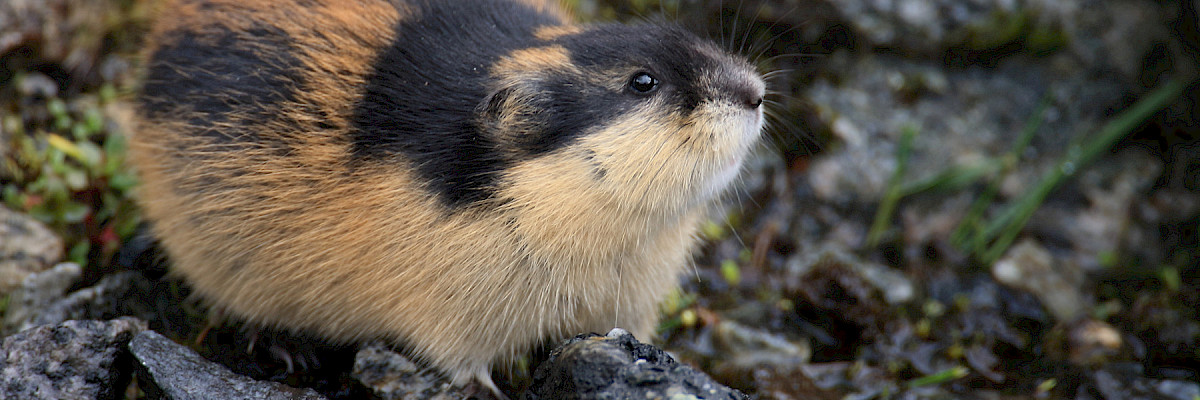
Terrestrial Mammals Expert Network
The Mammals Expert Network of the CBMP-Terrestrial provides information on the status and potential changes in Arctic mammals and advice for monitoring.
The Mammals Expert Network of the CBMP-Terrestrial is tasked with advising on how to implement relevant components of the Arctic Terrestrial Biodiversity Monitoring Plan. In the Arctic Terrestrial Biodiversity Monitoring Plan, mammals have been identified as an overarching Focal Ecosystem Component (FEC). FECs are key elements of the Arctic terrestrial ecosystem. Changes in FECs status likely indicate changes in the overall environment.
Mammal FECs include:
- Large herbivores (Rangifer—reindeer/caribou, muskoxen, moose),
- Medium-sized herbivores/omnivores (hares, ground squirrels),
- Small herbivores (lemmings, voles),
- Large predators (wolves, bears),
- Medium-sized predators (foxes, wolverine, lynx)
- Small predators (stoat, weasel, ermine)
CARMA
The CircumArctic Rangifer Monitoring and Assessment Network (CARMA) monitors and assesses the impacts of global change on the Human-Rangifer System across the Arctic through cooperation, both geographically and across disciplines.
MOXNET
The Muskox Expert Network (MOXNET) is a collection of scientists and experts that advise on muskox-related monitoring and other requirements under the Arctic Terrestrial Biodiversity Monitoring Plan.
Small mammals
The CBMP Small Mammal Expert Network is a collection of scientists and experts that advise on monitoring issues and other requirements regarding small mammals, in particular, lemmings, under the Arctic Terrestrial Biodiversity Monitoring Plan.
 Arctic Council Working Group
Arctic Council Working Group 
